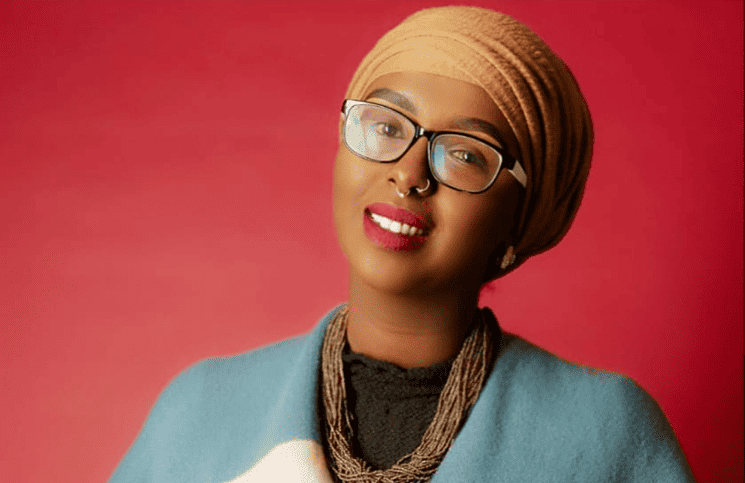Toronto-based non-profit BlackNorth Initiative, along with partners Habitat for Humanity and the Dream Legacy Foundation, recently launched a program that some believe could make a world of difference for the Black community within a single generation.
Federal government studies show that Black Canadians have one of the lowest home ownership rates, with almost two-thirds renting and unable to benefit from homeownership, the golden goose of Canadian wealth. This can affect a family’s ability to build wealth and security through generations, leaving them far behind.
It’s an uncomfortable fact that it wasn’t until the 1950s that discriminatory practices in Ontario’s housing market were banned, including the occasional restrictive use of riders on land deals aimed at preventing property from being transferred to someone who was Black.
Many people aren’t aware how deeply racialized the road to home ownership remains to this day, says BlackNorth’s executive director, Dahabo Ahmed-Omer.
Developed to address housing disparities caused by systemic racism, BlackNorth’s Homeownership Bridge Program (HBP) eventually will be national in scope. At least that’s the goal, funding permitting. For now, the program is focused on the Toronto-area pilot, aiming within the next five years to create up to 200 affordable homeownership opportunities for working Black families (with at least one child under 16) who are first-time buyers with an income between $65,000 and $90,000.
To that end, BlackNorth is in the process of raising a $65-million fund to assist families with bridge financing. The HBP will be based on a shared equity mortgage structure, with eventual repayment typically including a percentage of property appreciation. An equity sharing formula (with the ratio based on how much of the financing the homeowner paid down) directs how much equity homeowners are left with in the long run and how much ultimately will go to the program to be re-invested to create additional homeownership opportunities for the Black community.
“The program is more than an affordable housing strategy. It’s an economic and a racial inclusion strategy,” Ahmed-Omer says.
This is what transformational change looks like, she and BlackNorth founder Wes Hall have both stated. The latter has said the COVID-19 crisis made it clear that “affordable housing is key to Canada’s recovery, as communities across the country are dealing with the devastating impacts of rising levels of homelessness and housing need.”
In the near future, BlackNorth forecasts that the program could create many millions of dollars in new Black household wealth.
The bulk of the offerings will be condos, thanks to the various developers contributing to the program and providing units specifically for the program. Those condos won’t be available on the open market, says Ahmed-Omer.
There’s a growing list of other supporters, including all three levels of government. Building on previous promises to assist Black Canadians in their dream of home ownership, Prime Minister Justin Trudeau’s recent announcement of a commitment of $10 million in federal funding to BlackNorth’s HBP was widely covered by the media.
“Different Canadians face unique challenges, especially when it comes to finding a safe and affordable place to call home,” federal minister of housing and diversity and inclusion Ahmed Hussen told the press. “This funding will support Black Canadians across the GTA to become homeowners and break the cycle of core housing need.”
The program is just gearing up, but interest already appears to be high. “Every day my inbox is full. I don’t know if any of us thought we’d have this much demand,” says Ahmed-Omer. “We have to provide a lot of information and orientation to our applicants. The model is so different from what people are used to. It’s unique, not traditional.”
For instance, instead of a down payment, approved applicants will provide “sweat equity,” in the form of 500 hours of volunteer community service with one of the program’s partner organizations.
Program manager Sagal Abdi says, “A lot of hard questions will come now. We’re clarifying the details. Not everyone will be interested in the concept of equity sharing and having such a long partnership. A lot more education is required.”
Those who are approved will get plenty of that from supports such as mandatory homeowner education workshops, covering everything from financial literacy to the specifics of home equity loans, condo ownership and future generational property transfer.
“The learning curve is important to the success of the program,” says Ahmed-Omer. “The generational knowledge and training have not been passed down within the Black community. Owning homes has not been part of our journey.”
Applicants have told her how much the program could help them. Ahmed-Omer says she’s excited to be part of something so potentially life-changing.
“The ripple effect will be beyond measure,” she says. “A lot has gone into this. I’m looking forward to handing the first family their house keys. We’re handing them the dream.”
Susan Doran is a Toronto-based freelance writer who has been contributing to REM since its very first issue.













